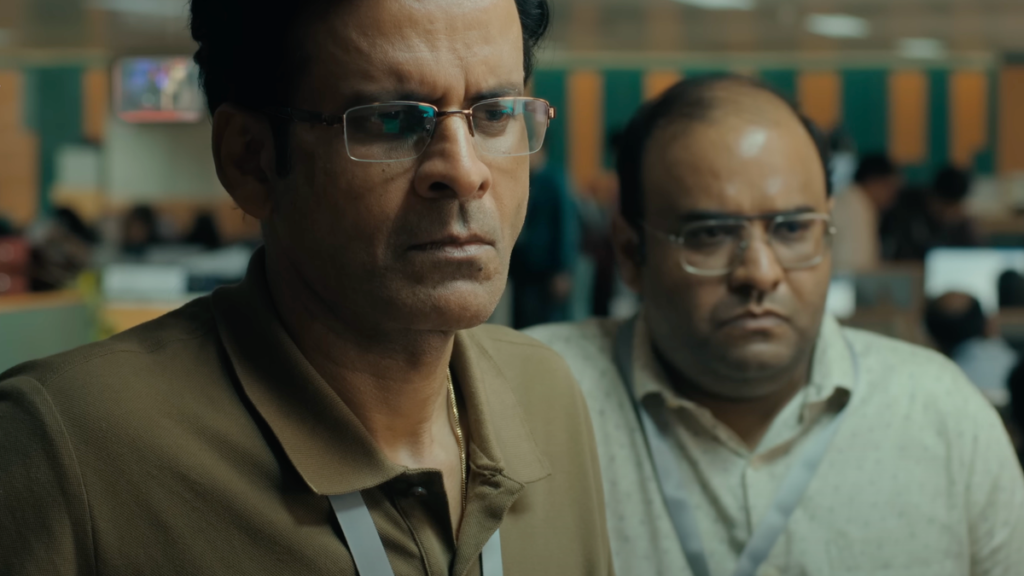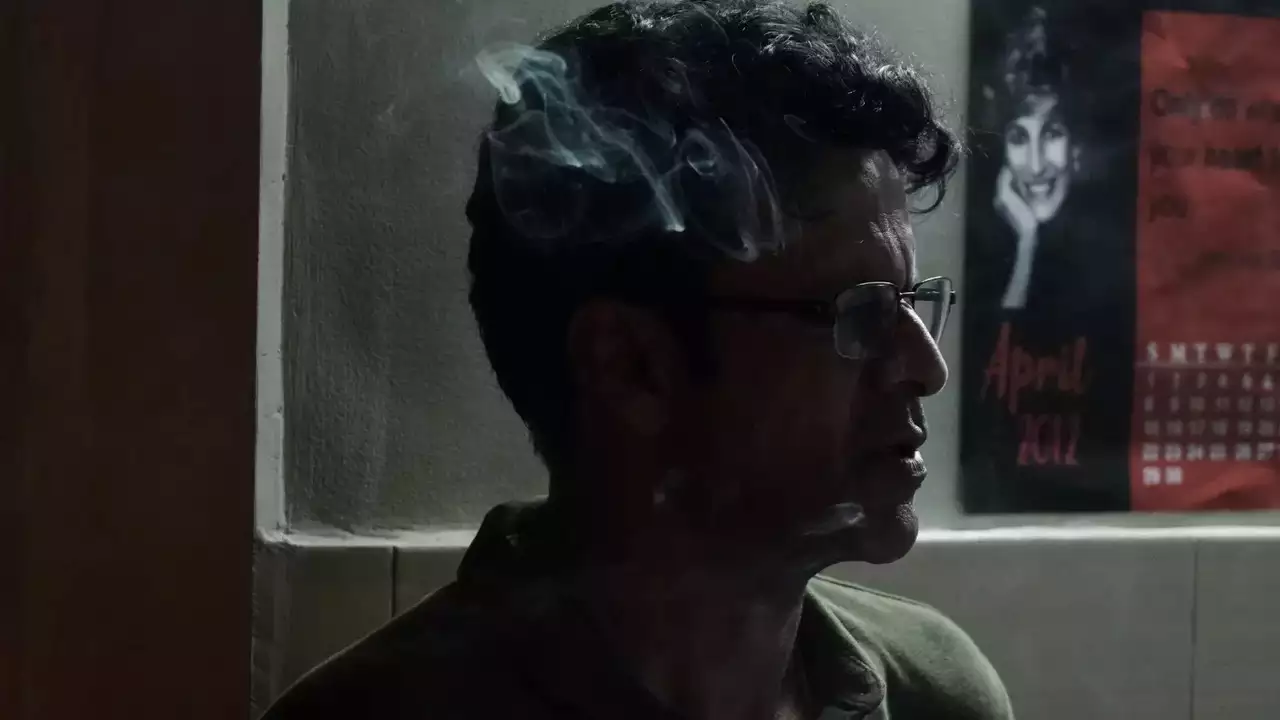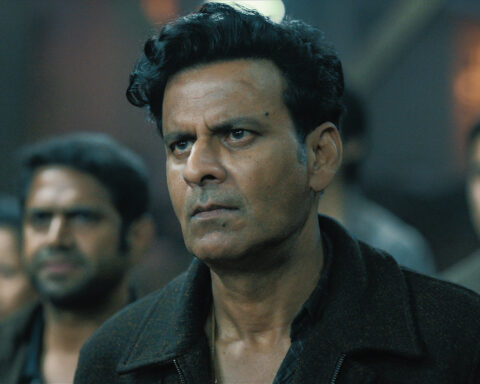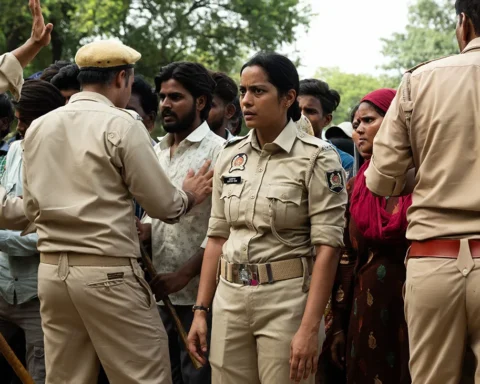Kanu Behl’s third feature film, Despatch, offers an unflinching and incisive exploration of the murky nexus between politics, media, and business, seen through the lens of a crime journalist. The film invites us to step into the fraught world of journalism circa 2012, a time when idealism often found itself buried alongside victims or auctioned off to the highest bidder. It paints a vivid picture of a profession besieged by gatekeepers, threats of violence, and other forms of thuggish silencing. The story lays bare the stark reality: battling a corrupt individual in power reveals that power itself is a hydra, with each head—no matter how distinct—belonging to the same body. This chilling truth underscores the systemic nature of the issues within the media landscape. At its heart, the film delves into the fundamental duality that haunts every journalist: the intoxicating thrill of chasing a “good story” juxtaposed against the ethical dilemmas and personal risks involved. The tension between sensitivity and objectivity. Journalists face the challenge of maintaining neutrality while empathizing with those impacted by the events they cover. This nuanced narrative stands out for its simplicity, brought to life by a stellar cast delivering powerful performances, combined with an incisive take on the subject.
Joy Bag (Manoj Bajpayee) is a seasoned crime journalist working for the newspaper Despatch, which is on the verge of transitioning to a digital platform. While investigating the broad daylight murder of currency smuggler Shetty, Joy uncovers that a file linked to a dubious company, GDR, has been stolen from the vigilance office. His pursuit of the truth leads him deeper into the tangled rivalry between two underworld factions—Rajan and the D Company. This, in turn, unravels connections to the infamous 2G spectrum case and hawala transactions, involving the laundering of black money through the lucrative T-20 league. Amidst the chaos of his professional life, Joy’s personal life is equally tumultuous. He is romantically involved with his colleague, Prerna (Arrchita Agarwaal) while struggling with a troubled relationship with his wife, Shweta (Shahana Goswami), whom he plans to divorce. Despite the disarray in both spheres, Joy stumbles upon whispers of a colossal scam—one that could shake the nation to its core. As he delves further, the stakes rise, forcing him to confront the perilous intersections of power, corruption, and morality. Soon, he realizes that uncovering the truth might come at an unimaginable personal cost.
Despatch takes its cue from events loosely inspired by the murder of seasoned crime journalist Jyotirmoy Dey. This real-life tragedy serves as a thematic undercurrent, shaping the film’s exploration of the dangers and ethical dilemmas faced by investigative journalists. The events unfold as a slow burn, drawing us into the turmoil that the characters face. The film skillfully allows dramatic tension to simmer, building gradually before reaching its boiling point. The characters take their time to process crises—they think, react, and respond with a natural rhythm that feels authentic. Their behaviour is grounded, avoiding exaggerated heroics or hyperbolic actions. Instead, they are portrayed as ordinary individuals caught in a vortex of circumstances beyond their control, struggling to find a way out. The filmmaker chooses a darker mood, which complements the sense of hopelessness that pervades the film.

Behl and his co-writer, Ishani Banerjee, craft an uncompromisingly cerebral and austere narrative, offering a stark portrayal of disenchantment and tension. The writing refrains from sensationalism, maintaining a sharp focus on the psychological and emotional weight of the story. Even the depictions of sexual encounters are understated, woven into the narrative with an unflinching honesty that serves to deepen the characters’ vulnerabilities and relationships. The female characters in the film are also given agency, with the right to explore their sexual desires and assert their own identities. This measured approach reinforces the film’s raw, unvarnished exploration of power, corruption, and human frailty. It also reflects the high stakes of exposing power structures, where seeking the truth can often lead to fatal consequences. The narrative stays firmly on the side of those who are fighting a losing battle against the system. The viewer immersed in this world feels every ounce of the fear and anger that the protagonist experiences.
The film benefits from the cinematography of Siddharth Diwan, who creates a brooding atmosphere that complements the tone of the narrative. His sharp framing captures the characters in their most vulnerable moments, highlighting their internal struggles. The claustrophobic visuals generate a sense of the protagonist being trapped in a web of discoveries, each revelation drawing him deeper into a dangerous and uncontrollable situation. The editing by Manas Mittal and Samarth Dixit allows the scenes to unfold at a measured pace, gradually building tension before it reaches its peak. The careful pacing helps in building suspense, allowing the tautness in each scene to simmer and intensify, drawing the audience deeper into the narrative. Pritam Das’ sound design is intricately structured around silent moments, the nuances in dialogue delivery, and the vehicular noise of traffic. There is a serene quality to the aural landscape, where the subtle sounds enhance the tension and atmosphere, allowing the quieter moments to speak volumes while maintaining a sense of realism. From the cramped, cluttered spaces to the stark, urban landscapes, the production by Shruti Gupte enhances the sense of confinement and tension, making the settings as much a part of the story as the characters themselves.
Despatch highlights Manoj Bajpayee’s acting prowess, adding another remarkable achievement to his career. As the fearless journalist Joy, he effortlessly balances strength and vulnerability, capturing the character’s emotional complexity. His interactions with the women in his life further define his moral struggles, revealing the nuances beneath his tough exterior. Debutante Arrchita Agarwaal, as Prerna, portrays a woman with an agency who doesn’t take anything for granted. Agarwaal imbues her character with strength and conviction, creating a presence that is both compelling and grounded. Shahana Goswami, as Shweta, portrays an independent woman who is deeply attached to her husband, so much so that even after being humiliated, she continues to crave his affection. Goswami gives her character a complex blend of strength and intricacies, capturing Shweta’s inner turmoil and conflict. Rituparna Sen’s Noori is a sharp journalist who knows how to navigate her way in a male-dominated world, and she brings a sense of confidence and determination to the role. Kabir Sadanand and Mamik Singh make brief appearances, contributing to the story with their subtle yet impactful performances.
In Behl’s previous works, Titli (2014) and Agra (2023), he demonstrated his skill in using the relationships between family members to explore deeper emotional and psychological layers, enriching the narrative with complexity and nuance. Though Despatch is an investigative crime drama, the scenes involving family dynamics truly elevate the film, bringing a powerful emotional resonance to the narrative. It is undoubtedly a meticulously structured thriller, but as the protagonist’s investigation progresses, the threads that weave the story occasionally miss the beat. While the material has much more potential to keep us hooked, it somehow falls short of fully capitalizing on that potential, failing to maintain the engagement and momentum needed to captivate the viewers.
Despatch is currently available to stream in ZEE5.






